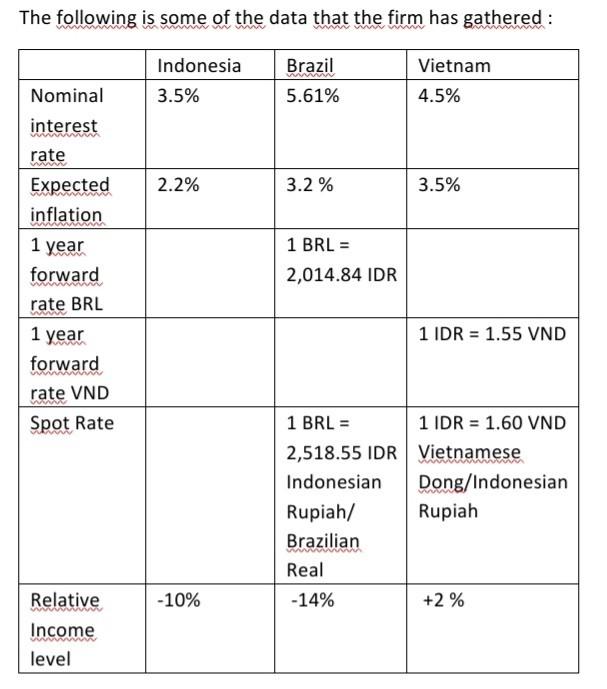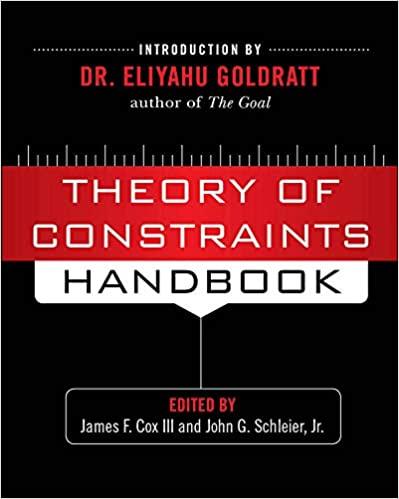Question
Indonesia is a natural resource-rich country whereby more than 90% of the country's total exports comes from commodities which are linked to these natural resources.
Indonesia is a natural resource-rich country whereby more than 90% of the country's total exports comes from commodities which are linked to these natural resources. Benefiting from its tropical environment, Indonesia is also regarded as one of the world's greatest coffee producers. Indonesian exports for both the robusta and the arabica coffee varieties and is currently rated third in the world in terms of output. Whilst in terms of value, Indonesia's total export value for this produce was only USD 808 million of the overall global export value for raw coffee bean products was USD 18.7 billion in tates, the United Kingdom, India, China, 2019. Brazil, Spain, Italy, Turkey, Argentina, the United Thailand, Japan, Vietnam, Pakistan, Malaysia, and Hong Kong are among the export destinations.
The economic potential of the coffee industry offers a good growth opportunity for PT Kopi Ceria Indonesia (KCI), a family-owned business that has been involved in cultivation and trading varieties of coffee since 1972. The company main business has since focused more on the sourcing, trading and processing of high-quality Robusta and Arabica coffee. They have successfully maintained high standard of process and quality control in handling the coffee supply chain, processing, and trading on an industrial scale. KCI serves both domestic and international markets. The company markets its final product of the roasted coffee beans to variety of parties from home brewers, cafes, and B2B. Arabica coffee, Robusta coffee, and green coffee bean are among the company's offerings. Currently KCI plans to optimize its business, vigorously increasing processing capacity of premium arabica coffee from its established suppliers coming from various places across the archipelago, ranging from Sumatra, Sulawesi Java, Bali, Sumbawa, Flores, and Papua. In general, Indonesia's arabica coffee varieties have low acidity and strong bodies, which make them ideal for blending with higher-acidity coffees such as those produced by Brazil and Vietnam. Within this context the company is contemplating expanding its business by cooperating with coffee processing companies in Brazil and Vietnam.

Question : it is understood that the equilibrium exchange rate will change over time as supply and demand schedules change. Taking into account the respective inflation rates, interest rates, and income levels of the three nations covering Brazil, Vietnam, and Indonesia, determine: Is there a shift in the exchange rate equilibrium between BRL/IDR and VND/IDR? Use a graph to explain your answer.
The following is some of the data that the firm has gathered : VAN Indonesia 3.5% Brazil 5.61% Vietnam 4.5% 2.2% 3.2% 3.5% Nominal interest rate Expected inflation 1 year forward rate BRL NAN 1 BRL = 2,014.84 IDR WA 1 year 1 IDR = 1.55 VND WAV forward rate VND Spot Rate 1 BRL = 1 IDR = 1.60 VND 2,518.55 IDR Vietnamese Indonesian Dong/Indonesian Rupiah/ Rupiah Brazilian Real -14% +2 % -10% Relative Income level The following is some of the data that the firm has gathered : VAN Indonesia 3.5% Brazil 5.61% Vietnam 4.5% 2.2% 3.2% 3.5% Nominal interest rate Expected inflation 1 year forward rate BRL NAN 1 BRL = 2,014.84 IDR WA 1 year 1 IDR = 1.55 VND WAV forward rate VND Spot Rate 1 BRL = 1 IDR = 1.60 VND 2,518.55 IDR Vietnamese Indonesian Dong/Indonesian Rupiah/ Rupiah Brazilian Real -14% +2 % -10% Relative Income levelStep by Step Solution
There are 3 Steps involved in it
Step: 1

Get Instant Access to Expert-Tailored Solutions
See step-by-step solutions with expert insights and AI powered tools for academic success
Step: 2

Step: 3

Ace Your Homework with AI
Get the answers you need in no time with our AI-driven, step-by-step assistance
Get Started


